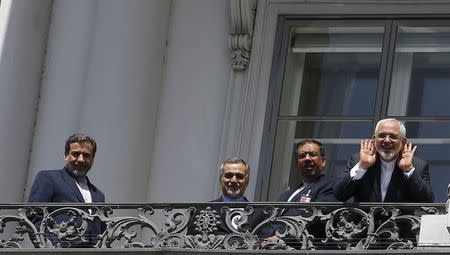Iran's Rouhani: Deal heralds new era of cooperation with world

DUBAI (Reuters) - Iranian President Hassan Rouhani said on Tuesday his country's nuclear deal with major powers would open a new chapter of cooperation with the outside world after years of sanctions, predicting the gradual elimination of mutual mistrust. He added in a live televised speech that Iran would abide by its commitments under the agreement as long as world powers did so too, and asserted the accord protected gains made by Tehran in a nuclear programme the West suspects is intended to develop an atomic weapon. Iran says the work is purely peaceful "Today is the end to acts of tyranny against our nation and the start of cooperation with the world," he said. "This is a reciprocal deal. If they stick to it, we will. The Iranian nation has always observed its promises and treaties." In remarks that often seemed aimed at a domestic audience, he suggested the deal reached after marathon talks between the OPEC oil producer and world powers would lay the foundations for an improvement in an economy battered by years of sanctions. He recalled that his election in 2013 was made possible by voters who "clearly said they want a government that protects the nuclear programme and brings prosperity to the country as the same time." "We didn't ask for charity. We asked for fair, just and win-win negotiations," he said. "Today after 23 months of negotiations with world powers we reached a turning point." Rouhani also urged neighbouring countries to ignore what he called propaganda by its arch foe Israel, saying Iran had a shared interest in the stability of the region. (Reporting by Bozorgmehr Sharafedin and Parisa Hafezi, Writing by William Maclean; Editing by Hugh Lawson)

